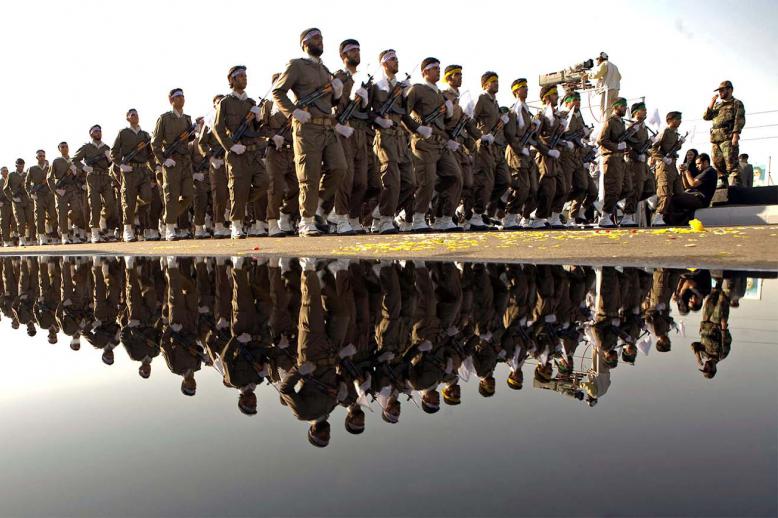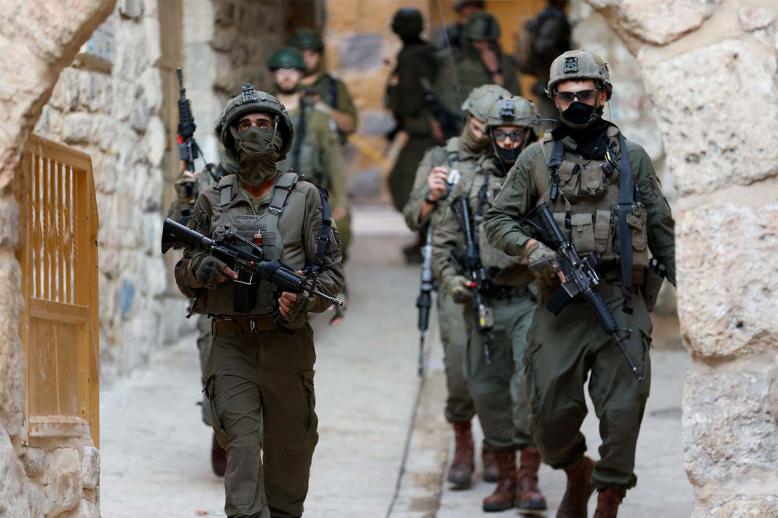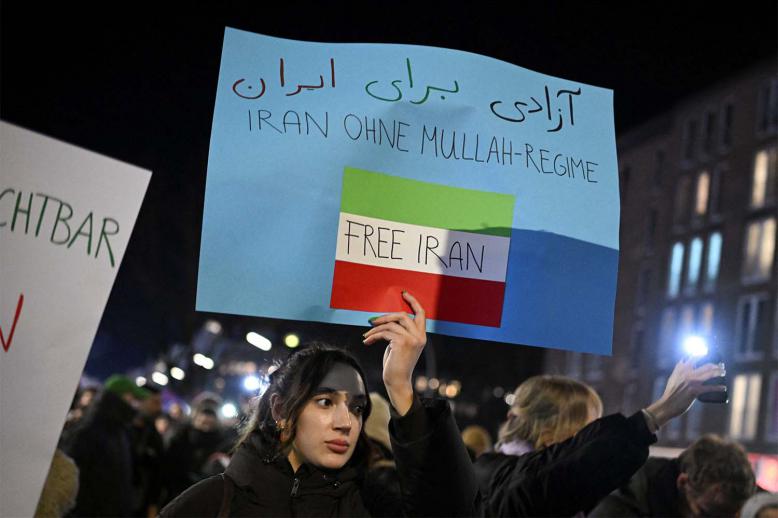Tehran divided in its response to Trump
US President Donald Trump’s withdrawal from the nuclear deal with Iran, officially known as the Joint Comprehensive Plan of Action (JCPOA), elicited contradictory reactions in Tehran, reflecting the deep divisions among the regime’s ruling elites. While Iranian President Hassan Rohani and the technocratic elites promised to abide by their obligations under the nuclear agreement, the Islamic Revolutionary Guards Corps (IRGC) pushed for withdrawal from the JCPOA. It is not yet known which path the Islamic Republic will choose but Tehran’s choice will mean the difference between a hot or cold war.
In the first official reaction to Trump’s withdrawal from the deal, Rohani tried to calm the Iranian public. In a live televised speech, the Iranian president told people not to be concerned about the “economic consequences” of Washington’s new policy. The words, however, were hardly enough to assure a country that has seen their currency in free fall against the US dollar over the past few months.
Rohani also tried to reassure other parties to the nuclear agreement that Iran would continue to adhere to its obligations under the JCPOA.
“In the course of a short time, we reached the conclusion that we can achieve all the demands of the Iranian nation in cooperation with five countries,” Rohani said. “Despite the desire of the United States and the Zionist regime, the JCPOA will remain and we can take steps towards regional and global peace and stability.”
Rohani added, however, that Iran may change direction if the country concludes “that its interests [under the JCPOA) are not guaranteed.”
Iranian Foreign Minister Mohammad Javad Zarif took the same line on Twitter, declaring his intention to “spearhead a diplomatic effort to examine whether remaining JCPOA participants can ensure its full benefits for Iran. The outcome will determine our response.”
Rohani and Zarif’s approach makes perfect sense. They are aware of the deep divide between the United States and its European allies, let alone Russia and China. Accordingly, they are trying to depict the United States as the aggressor even as Iran lives up to its obligations under the nuclear agreement. In doing so, they hope to isolate the United States and prevent an international coalition from imposing new or re-imposing old sanctions against Iran.
The question, of course, is whether Rohani will manage to stick to this sensible course. Statements made by IRGC commanders suggest that Iran’s president may find it difficult to do so. In his first response to Trump’s withdrawal from the deal, IRGC chief commander Major General Mohammad-Ali Jafari dismissed Rohani’s approach.
“It is clear that the Europeans, [who are caught] between Iran and the US, can’t decide independently,” Jafari said. “They are dependent on the United States and the destiny of the JCPOA is clear.” Jafari also said that the US had used Iran’s enrichment of uranium as a “pretext” to weaken Iran’s military capabilities.
Meanwhile, Major General Mohammad Bagheri, chief of staff of the Armed Forces, said: “The JCPOA was not the desire of the Iranian nation and was not something that we would like. However, Iran magnanimously and generously accepted it for all the world to see.” He dismissed the threat of US military operations against Iran: “The Americans and the Saudis don’t have the capability and the guts to start a military attack against Iran. This is why they try through economic warfare.”
Other IRGC commanders previously disclosed that the Revolutionary Guards had recommended for the Rohani government to withdraw from both the nuclear deal and the Treaty on the Non-Proliferation of Nuclear Weapons (NPT). These commanders may be more interested in undermining Rohani in an attempt to to eliminate the last pockets of civilian resistance to a military dictatorship in the making than in driving foreign policy.
On May 9, the morning after Trump announced the US would withdraw from the nuclear deal, the IRGC’s political allies in parliament burned the US flag and some papers symbolising the JCPOA while chanting “Death to America.” Watching them, Iran’s parliament Speaker, Ali Larijani mused: “Be careful not to set the parliament ablaze!”
Setting the whole country ablaze is exactly what the Islamic Republic risks doing if the IRGC gets to decide Iran’s line on the nuclear issue.
This article was originally published in The Arab Weekly.







